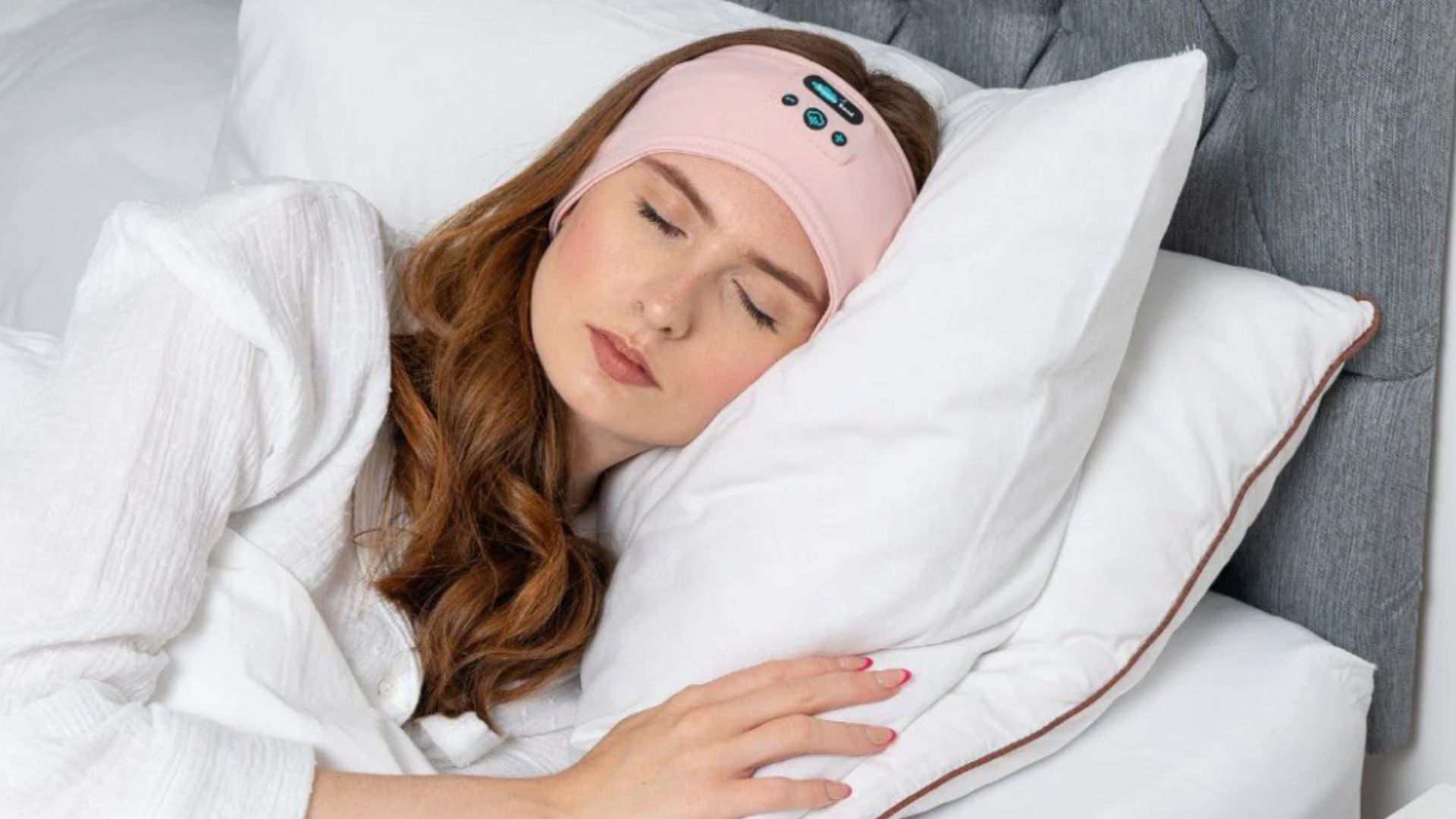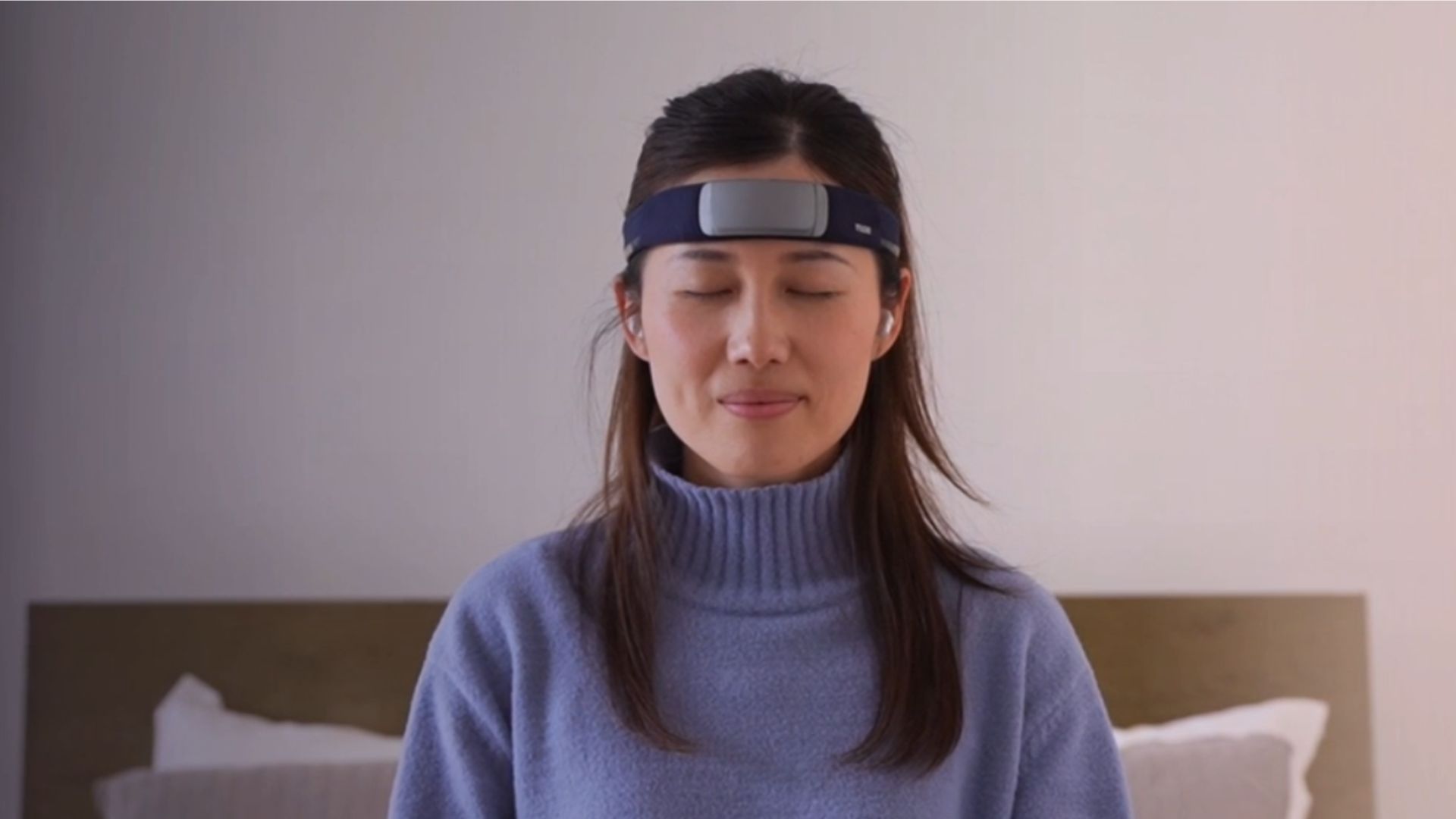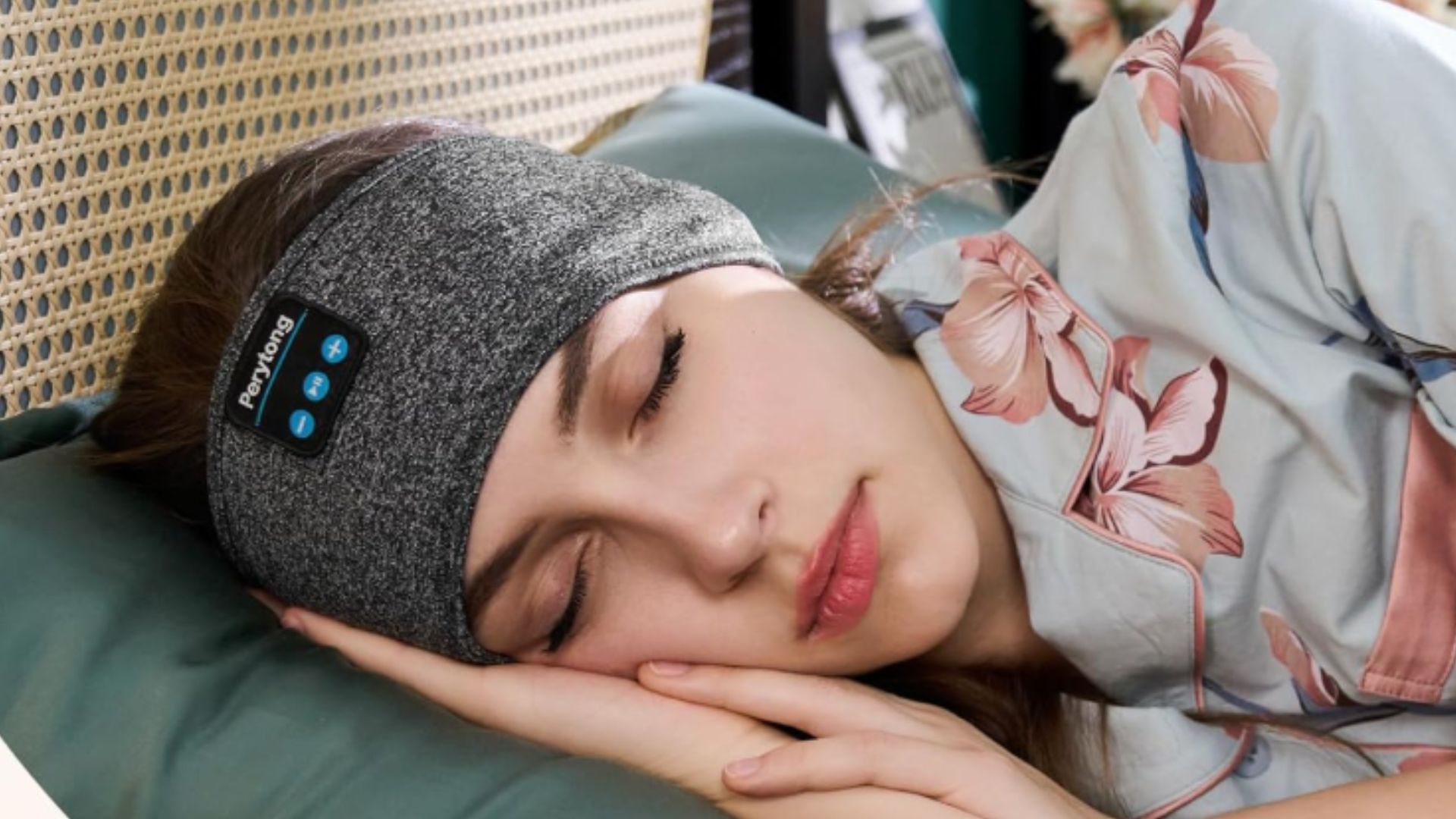
Sleep headbands are an increasingly popular sleep-inducing product gaining traction across social media and in the tech space. But what exactly are these strange looking sleep accessories and can they really help you fall asleep fast and improve your sleep quality?
While investing in the best mattress for your sleep style and body has long been the number one way to improving your sleep quality, there is now a much larger pool of gadgets promising to elevate your sleep — sunrise alarm clocks, sleep coaching apps and brain-tracking headbands included. Promising to track your brain activity while you sleep and offer personalized insights to help you sleep better, as well as delivering stress-reducing soundscapes and meditations to help you fall asleep faster.
If you're looking to revolutionize your rest in this year's President's Day sleep sales and are intrigued by sleep headbands, read on. We're going to explore everything you need to know about sleep headbands, as well as the benefits they can offer.
What is a sleep headband?
A sleep headband is a headband with speakers that play audio to help you sleep. They tend to be used to play calming sounds, guided meditations or white noise. Some also track your brain wave activity and sleep metrics to help you learn more about what goes on in your body and mind while you sleep.
They are specifically designed to stay on your head comfortably throughout the night. Some are made from fabric that fits over your ears, while others are thin fabric bands that fit around your forehead. Sensors and speakers are sewn into this material.
5 ways a sleep headband can help you fall asleep fast
From calming your mind to blocking out noise, there are several ways a sleep headband can help you fall asleep fast and stay asleep through the night…

1. Meditative sleep sounds
The main selling point of sleep headbands is their sleep-inducing audio, making them great gadgets for anyone who likes to meditate before bed or drift off to white noise, nature sounds or other calming music.
Studies in the Journal of Clinical Sleep Medicine show certain sounds, like white noise, have a positive impact on sleep outcomes. While white noise machines are another popular product, sleep headphones and headbands are better options for people who like white noise but their partner doesn't — sleep headbands have the additional benefit of being a more comfortable wearable.
2. Drown out other noise
Admittedly, sleep headbands don't actively or completely 'block out' noise like noise-canceling sleep headphones (we recommend the Loop Quiet 2 Earplugs if you're in the market for a pair of those, by the way.)
Instead sleep headbands work by producing a masking sound, usually white noise or calming sounds, through small speakers embedded in the headband, which helps to drown out external distractions and make it harder to hear surrounding noises like a snoring partner or road traffic outside your window, effectively creating a quieter soundscape for sleep.
Certain sleep headbands, especially ones that fit over your ears are even better at drowning out external noise that may be keeping you awake at night.
3. Brain activity tracking
Sleep headbands track brain activity by using a technology called electroencephalography (yes that's a mouthful so we call it EEG). This technology detects electrical signals produced by the brain through small sensors placed on the scalp (or sewn into the sleep headband). This allows the sensors to monitor brainwave patterns during sleep and identify different sleep stages like REM, deep sleep and light sleep.
While this sounds rather technical, sleep headbands work similarly to other wearable sleep trackers, like smart watches, that track your sleep metrics. They too produce nightly reports to help you understand how your sleep is affected by lifestyle choices and identify areas where you can improve your sleep quality, providing somewhat of an at-home sleep and health assessment.
4. Reduces stress
Stress and anxiety are two of the biggest disruptors of sleep. Most people can recall a time, or several times, they've been kept awake by racing thoughts or day-to-day worries.
The calming sounds delivered by sleep headbands are here to help you destress at the end of the day, lulling you into a peaceful sleep and helping you fall asleep faster.
A stressed brain gives off more waves or signals, due to increased electrical activity. By identifying these stress signals, sleep headbands can help the user train themselves to be calmer at nighttime.
5. Improves sleep quality
Neurological research has shown sleep headbands improve sleep quality and subsequent cognitive function and work behavior the following day. By reducing stress and drowning out disturbing external noise, sleep headbands help you stay asleep all night long, so you move through the restorative sleep cycles.
Getting quality sleep is key, not only to helping you wake up feeling well rested and energized, but also to regulating your circadian rhythm. A well regulated circadian rhythm means your body is more efficient at recognising when it is time to sleep and time to wake up. This means you fall asleep faster at night and wake up easier come morning.

How much does a sleep headband cost?
Like most sleep tech, sleep headbands come in a range of prices. There's budget options as well as more plush options, with features matching the price point. You can find budget sleep headbands on Amazon for less than $20. These tend to only come with built-in headphones rather than sleep tracking sensors, but can be used for other purposes. Made with sweatproof fabric and Bluetooth connectivity, they can be used as sports headphones too.
Or you can invest in higher-end sleep headbands, which cost around $300, if you want to track your brain health and sleep metrics. These are usually made from metal or plastic and fit across your forehead so the brain-tracking sensors can touch your skin.







